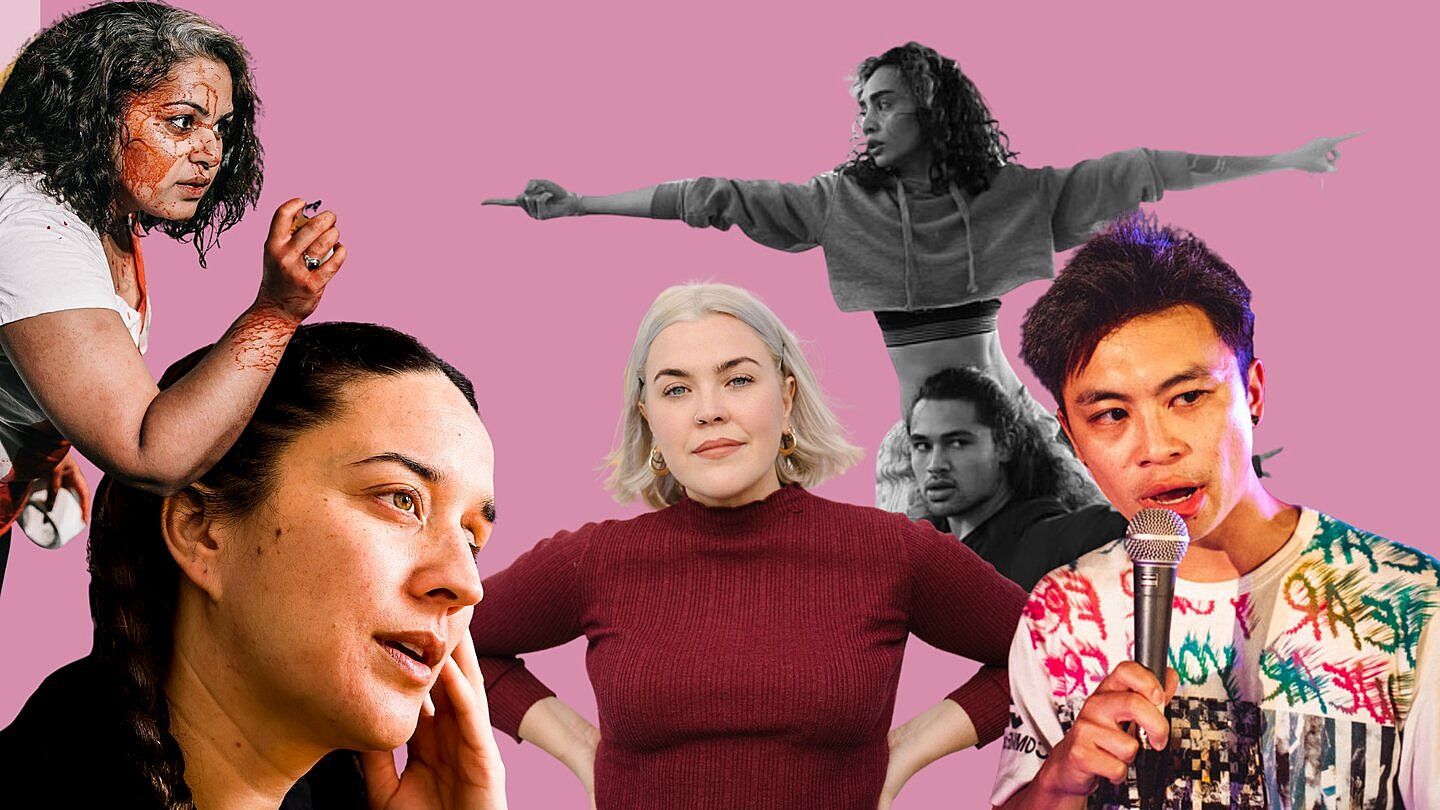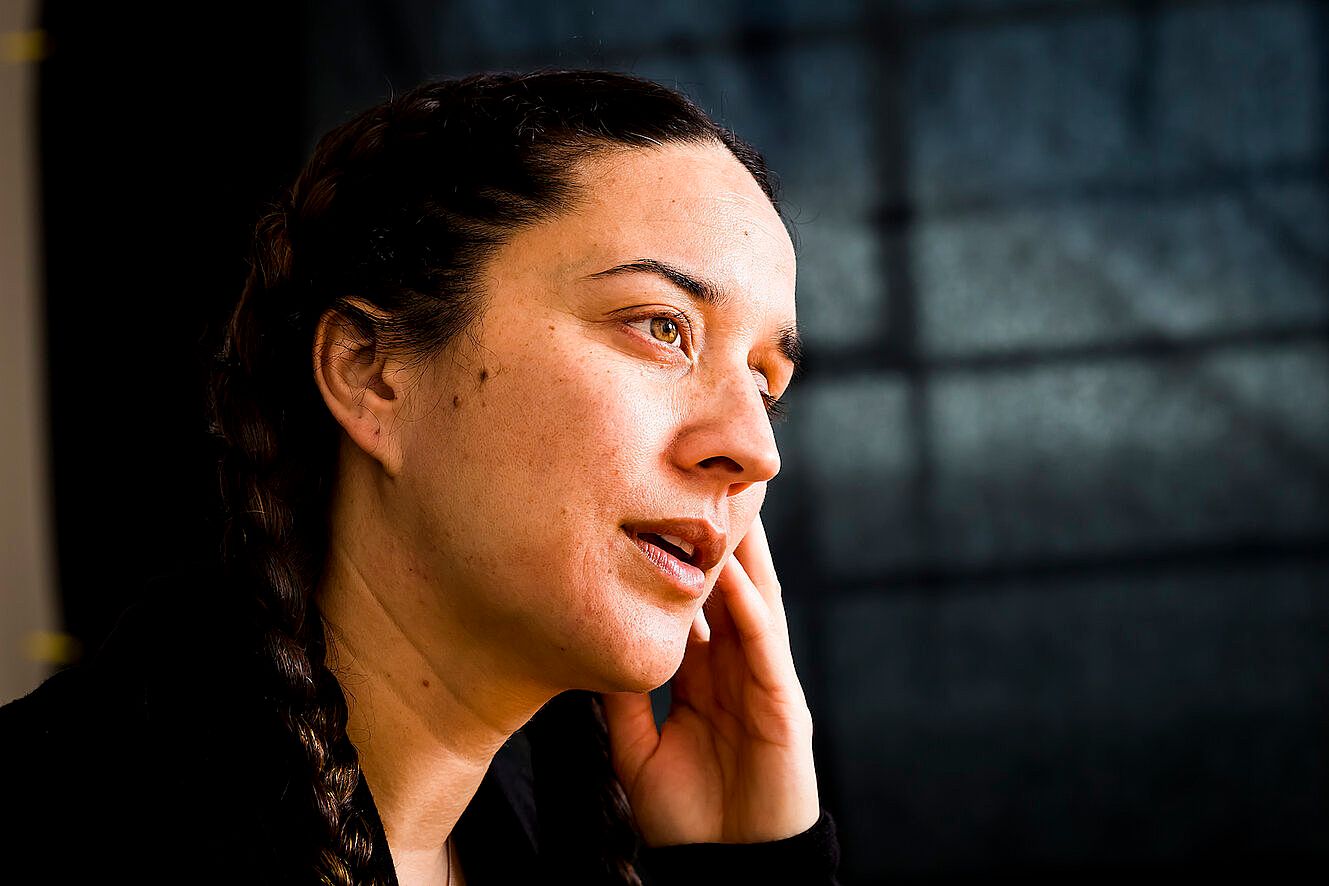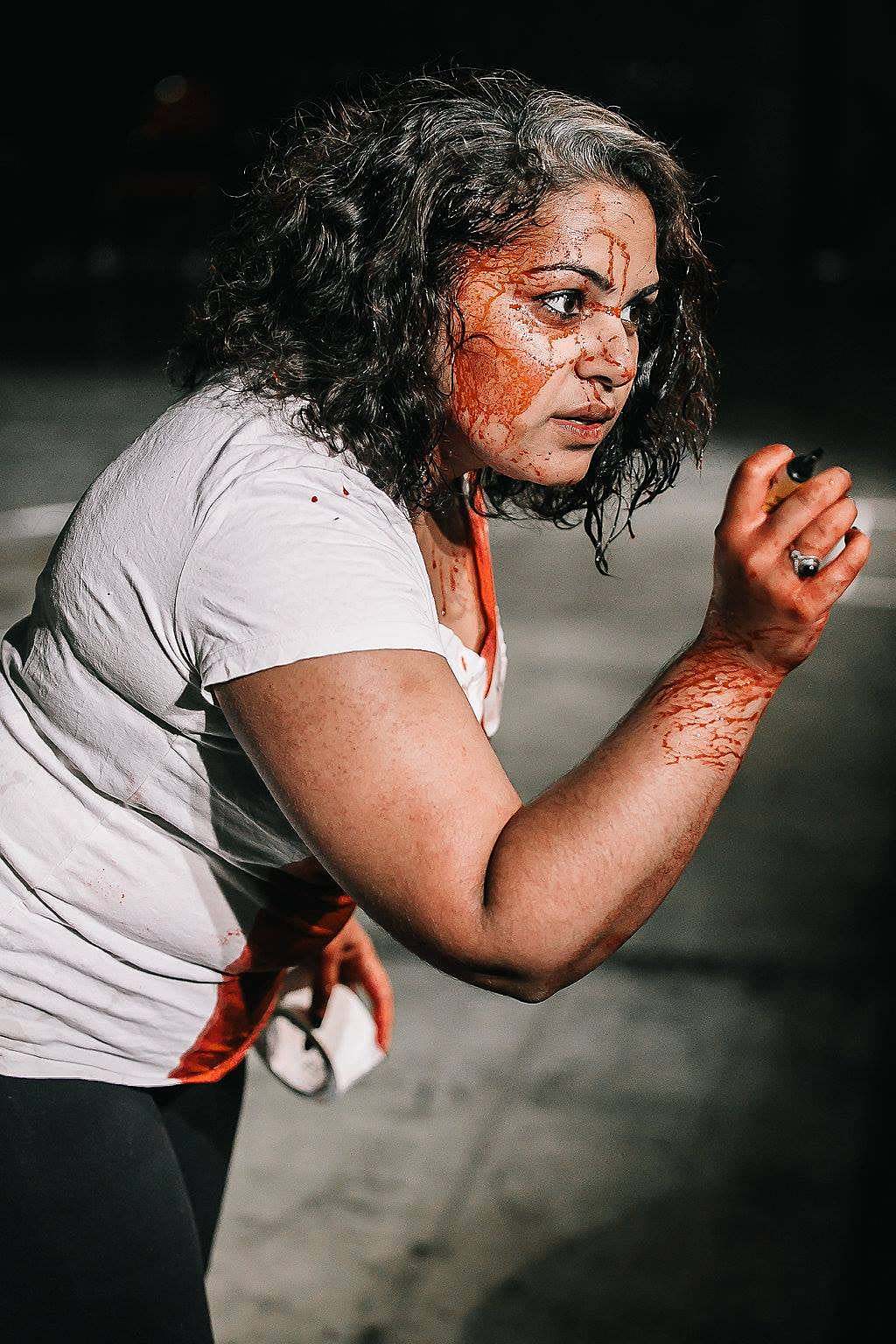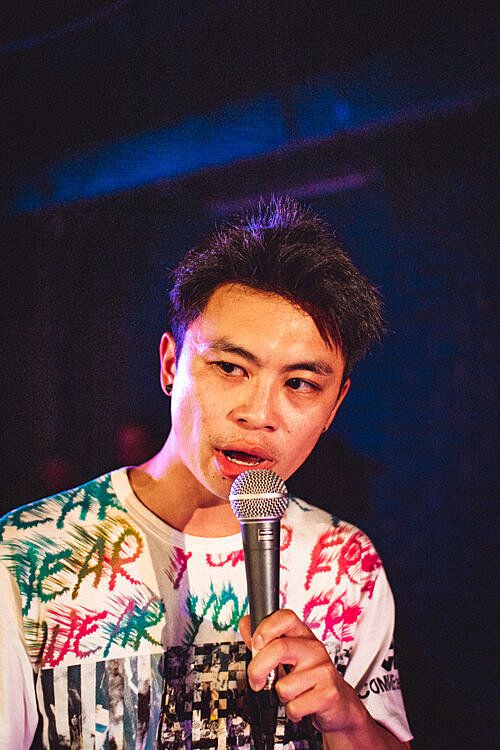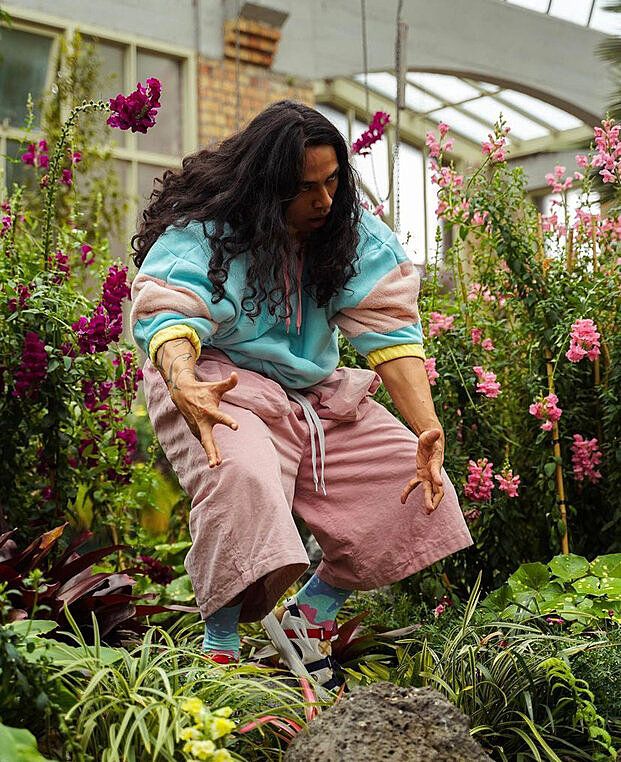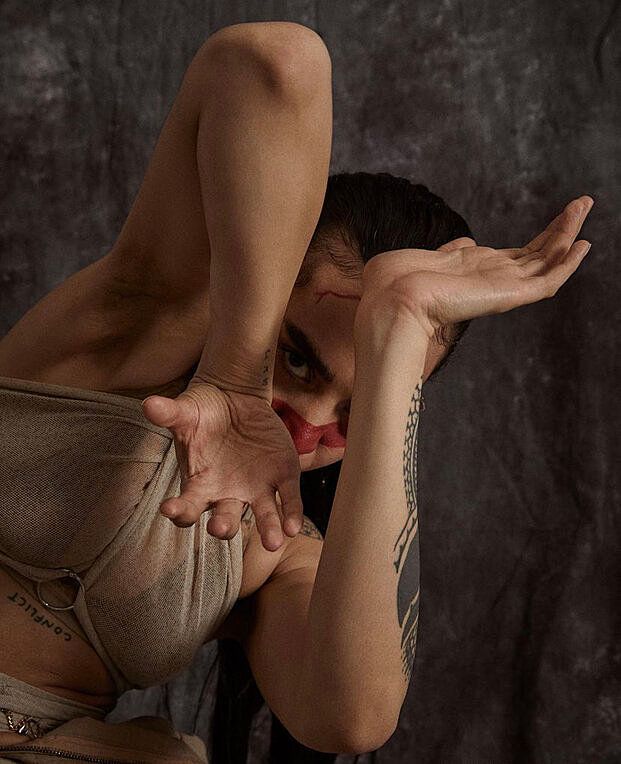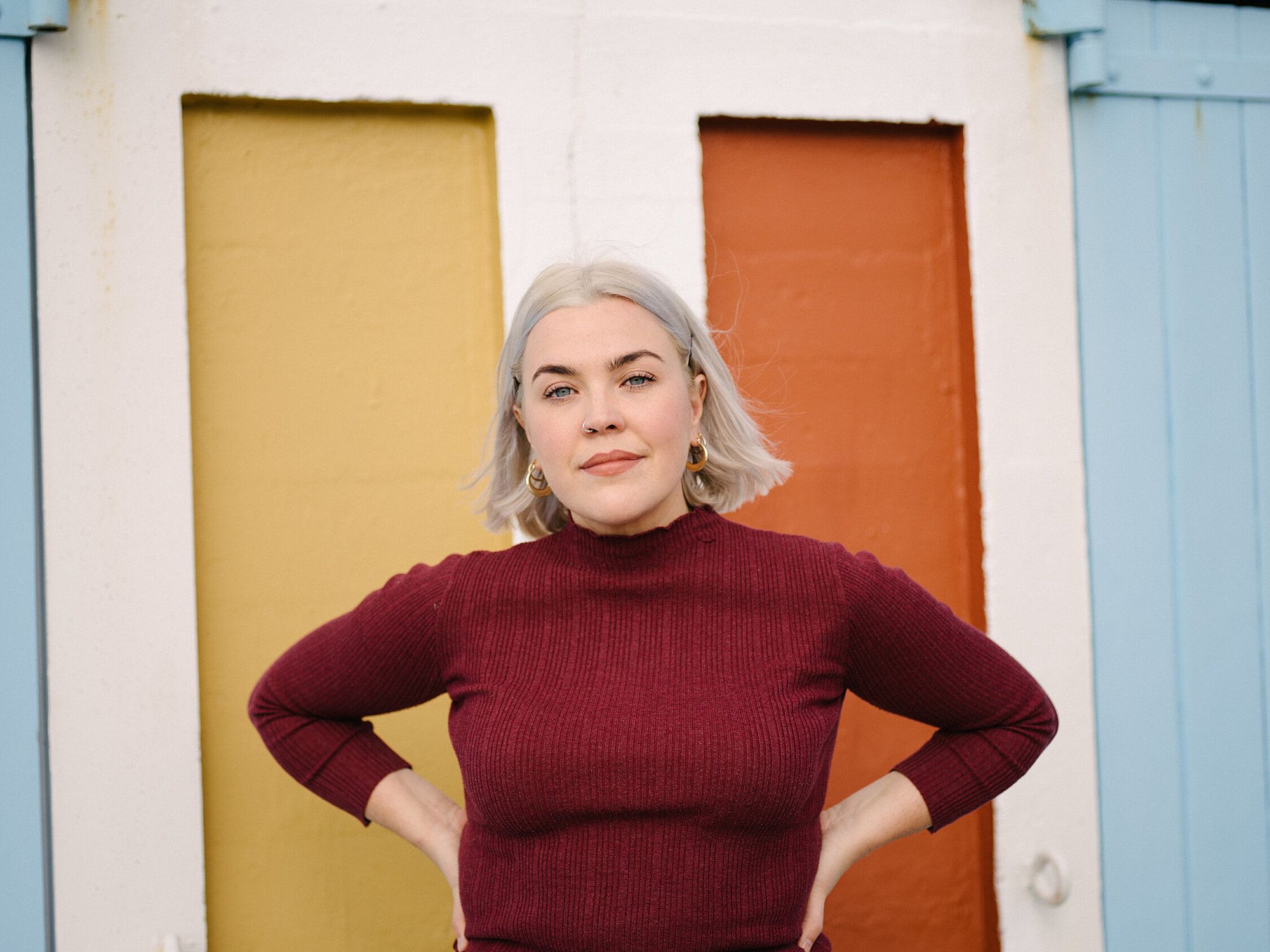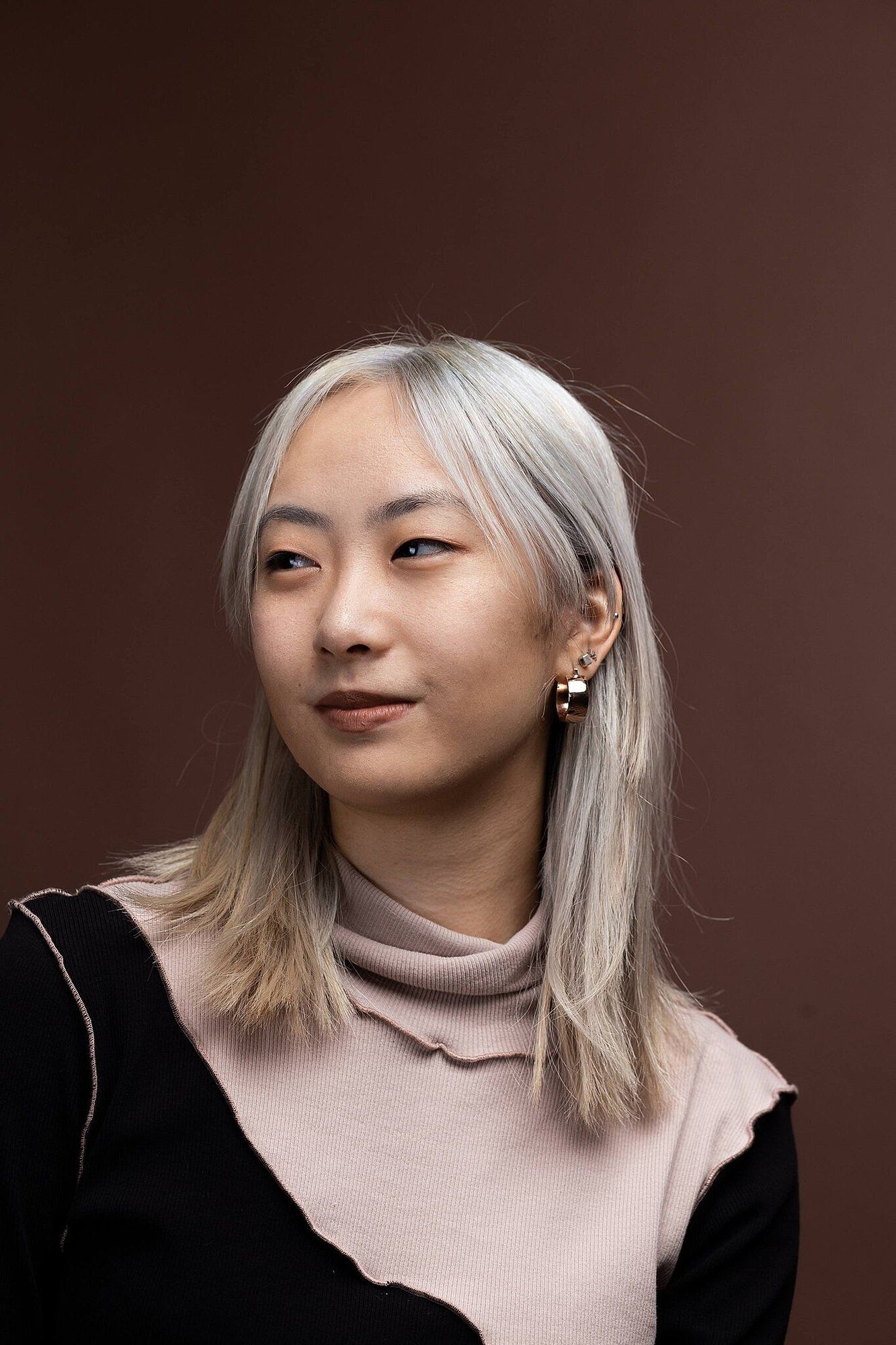The Artist Isn’t Present: Performing Arts in lockdown
In the latest lockdown, the performing arts industry is being left to bleed out. Nahyeon Lee chats to artists about their fears, dreams and visions for the future.
Theatre is an experience that can only exist on presence and liveness. The electricity activated in a space between an artist and an audience can only exist in that moment. I’ve found a healing balm in theatre, a sacred space of solidarity and community. But what happens when this becomes a risk to the public?
In my own practice as a writer/director/theatre producer, aka creative freelancer, I’ve never had the luxury of focusing on one project at a time. But I’m resilient, and I’m nimble, always keeping my head above the water. But only just. Freelance contractors don’t get holiday pay, sick leave or employee contributions to KiwiSaver. We’re often working endlessly on projects for the love of it or pitching spec projects that more often don’t get funding than do. And this was before Covid-19 devastated the performing-arts industry.
After the first Level 4 lockdown, in 2020, there was a lot of discussion about reimagining the industry (including this incredible piece by Rosabel Tan). Creative New Zealand quickly responded with emergency funding for artists and institutions to keep their doors open after the pandemic.
Now, in 2021, with another Level 4 in place, the more aggressive Delta strain and temporary implementation of a crippling ‘Covid Delta Level 2’ with a 50-person limit, the performing-arts industry is falling into even more despair, but this time with no relief from CNZ. The artists have been left to bleed out.
With its severe lack of unions there is a growing war cry in the performing arts, a hunger for activism and advocacy in the arts, desperate for an industry to be dismantled and remade to serve the artists who create it.
I talked to the artists that I admire and who inspire me, about their lockdown experiences, and their fears, dreams and visions for the future of the performing arts.
– Nahyeon Lee
Mīria George
Mīria George
Artist
@miriarei
Once this lockdown hit, it was different from last year. The last Level 4 lockdown, from the fear of the unknown and the trepidation, prompted a gutsy resilience from artists and a reconnection to our communities. This time, I felt instantly tired, and I really struggled to get through what would normally be, for any arts practitioner, a long working day. I figured the only way to survive it was to bury my head in creative work. Because the reality is, lockdown as an artist is many things, but mostly a reminder of a broken industry and a system that doesn’t work for the artists.
When the latest lockdown hit, Tawata Productions was just about to head into post-production for a sound drama series we’d been developing over the year. We moved post-production into the online space overnight, which is a completely viable process, but when you’re working online you lose the nuances of working together in a room. It’s disappointing when that’s interrupted because you lose that whanaugatanga, that energy and that magic of being in the same space.
Now I’m focusing on expanding our presence into online spaces, trying to conserve all the magic of the live experience but in the digital space. I guess one good thing about being systematically under-resourced as an artist, and one that is both Cook Islands and Māori, is that you’re used to constantly broadening your brushstrokes by your imagination. Constantly innovating because you’re not used to having access to all the resources. The Covid-19 pandemic is just one more pandemic that we have to evolve around, as well as paternalism and entrenched colonial values…
Art is what has kept me going – being reminded of the root reason, the original engine of why I do this, which is that I love creativity. And I felt like I had to bury myself back in that at the beginning of this lockdown. And that's where I found the stamina and energy to keep going.
Our whole arts industry here in Aotearoa needs a full reset, and we need our artists, our conduits of creativity and community, to be leading our industry. Our industry will not survive if it's led by administrators, venues, or even festival platforms. Our industry will only evolve for the good of all of us if it's led by our artists, and those who can be the bridge between creativity and community.
Nisha Madhan
Nisha Madhan
Artist/programmer
@nishamadhan
When the first lockdown happened last year, there was this great furore in the arts. It felt like a realisation from arts organisations that they were dependent on artists, and not the other way around as many artists have been led to believe. There was finally some space to say the system was always broken. We were plunged in, all together for a moment and facing the brink of an extinct performing-arts world. It felt like an opportunity for change, of the meaningful, long-lasting kind.
There were many great conversations that were starting to be had and the artist’s voice was being centralised in those. But the great sadness of this lockdown is realising how quickly all of those conversations have disappeared. We were lucky to be in New Zealand, with really strong leadership that brought us back to Level 1; but in returning, a neoliberal, capitalist rhythm of art and business was allowed back as well. All of those conversations were forgotten, and here we are in another lockdown and it feels like nothing out of last year has really been used to create some sustainable outcomes for artists. Those base levels of care that were put in place for artists last year should have been the status quo from that moment on. It still spins me out that the people who lose money in a lockdown are the artists, not the people who rely on artists to pay their wages.
People often get the difference between value and worth mixed up. There is this disconnection where we say, art is really valuable, but we will not pay what it's worth. We say, this thing is so beautiful and so, so valuable to our lives, but if we break it down into hours and dollars and cents, it's either too expensive to make, or too little to survive on through box office alone.
When Level 4 was announced and Terrapolis [directed by Nisha] was postponed, it was sort of unreal. Julia Croft [collaborator and performer] and I have had a really long friendship and collaboration, and it was devastating because this was one of our first works where we were starting to feel confident in ourselves. We felt that it was running really efficiently and smoothly, and we were looking forward to sharing it with people. Also, were it not for this pandemic, we would have been touring our previous works internationally, so this felt kinda like a big deal. Our first new work since all our touring fell through.
As the weeks go on in lockdown, Julia says to me often that her energy as a maker and performer is waning. It's not just about getting into Level 2 and putting the show back on because it was five lighting cues away from being ready; we also need to understand that performers are shamans, they need time to get themselves back up into that ritual space. These performances are also the result of weeks of generating collective energy with our collaborators. In postponing, there's all of that and then money is needed to make that happen all over again. Performance is a resource-heavy activity, but so it should be, because at its best, it's a ritual that can really spin some magic in a room.
Nathan Joe
Nathan Joe
Playwright/poet/theatre-maker
@yellowperilproductions
My birthday hit me while I was in lockdown, which made me reflect on my practice as an artist. I'm in a lucky position right now because of this residency at Christchurch Arts Centre, and I've got a weekly stipend for three months. After my residency, I move on to a shorter one, a micro-residency at Verb in Wellington, but then after that I'm back to square one, hoping that I’ll have a bigger project by the time I get there. As a freelancer, I'm only ever thinking six months to a year into the future.
The reality is the whole performing-arts ecology goes through this, and when we're not in lockdown I have to think about these things anyway. As an artist, I'm willing, as the one who has at least decided that. The path I’m taking is always going to be ebbing and flowing.
When lockdown happened, my spoken-word show Dirty Passports was cancelled. And then when we try to reschedule, it feels so fraught because everything's being reshuffled throughout the length of the lockdown. And, ultimately, that iteration of Dirty Passports will not ever happen because the next iteration that is now planned is a very different version – it is work that is permanently lost. The work that you would have made in August, September, October, even if you end up doing it later, isn't going to be the same because the content and make of it has shifted. You will have changed because of the pandemic and the lockdown.
And for me, the importance of the arts – not exclusively theatre, of all art, really – is the ripple it has in other ways. I'm not interested in whether that was a ‘good’ or ‘bad’ show or whether many people saw it. I’m interested in the long-term butterfly effect. What long-term effect does this have, holistically, on a person as a maker, on an audience member? What question or feeling does the work gift me that I might take out into the real world? That I might further pass on to my family or friends, consciously or unconsciously. That’s the importance of the arts for me.
Ooshcon (Conjah). Photo: Avneil Mohan
Jahra Wasasala. Photo: Holly Burgess
Jahra Wasasala & Ooshcon (Conjah)
World-benders, Dancers and Facilitators
@jahra.wasa & @ooshcon
The nature of dance is to be shared, and in lockdown the connection with other people outside of your bubble is no longer possible. Street Dance has ingrained ways of connection: Krump, Vogue and Hip Hop have ciphers, all these cultures have communal structures. We’re trying to shed a lot of the colonial gaze that we've been taking in being brown people in this world and in this country. We focused on reaching back into the birthplace of where we first started making work, Spirit-work. Shedding all of that to figure out in a that sense – in a kalou sense – where we are, what season of our life we are in, and what is the best thing we can offer to help cultivate these important spaces of personal and external community.
In lockdown, support needs to go straight to the artists, not just to the venues and the companies, because it doesn't always trickle down to the artists on the ground level. We're in between so many communities in our work, and we can see the communities who aren't included in those conversations. We don't see Street Style’d communities or houses getting the same amount of support. There's something crucial about the perspective of embodiment work or dance work that needs to shift. The powers that be must understand the critical nature of what we do. But as Street Dancers, Te Moana Nui a Kiwa artists, we were doing this before the funding. Many communities were doing this before the money, or before the training institutions, came in. Our artistry, or Spirit-work and our mahi never stop. So for us, come hell or high water, we will still be dancing. It is at the core of what we do. This is blood.
A lot of artists get so concerned about being valuable because we're taught to be. Artists are so worried that their output is what creates our social currency. And that was the energy we saw happening during lockdown. We really tried to release any grip on having to prove our worth, removing Euro-centric lenses of ‘art’ as separate. During isolation, some things have come up that I wouldn't have usually negotiated through, which has led us to a beautiful, new relationship with the craft.
During this lockdown, in our dance practice, we have learnt who we are and how to connect to old knowledge in our bodies, remembering the genealogies and histories through bloodline work and learning deeper empathy than we ever have before.
Johanna Cosgrove. Photo: Tim Onnes
Johanna Cosgrove
Actor/comedian
@johannacosgrove
I got a call that a show I was going to work on was cancelled, and I was like, Oh my God, that's like, all of my income that I was really banking on, just down the drain. The company did pay us out for a little bit of that, which is good of them, but it's not the full fee. Beyond that, it's not just the money but also your sense of purpose. You're like, what the hell have I got to look forward to?
In the performing arts, there’s a beautiful exchange between the performer and the audience. Many of the shows that I work on are interactive with the audience, and wouldn’t be the same without being able to parry with the audience, touch them or joke with them. When working in comedy, there's also something about everyone sitting in a theatre, distanced, and they've got a mask on. You can’t even laugh. You're just chuckling into your own mask.
I feel lucky to perform. I've been able to perform almost every day. But at the same time, it has been really challenging and scary. When we were in Australia on tour, the anxiety was so high because at any moment we could be trapped and not make it home. We just missed the guy with Covid-19 who flew to Wellington by ten minutes, and managed to just get out of Melbourne before they went back into lockdown. It was nuts to tour a show.
In Jacinda’s announcements, she said there's more help than ever. I was like, are you cooked? Last year CNZ offered the necessary financial support, but it hasn’t continued this year. Independent artists need ongoing support from the Ministry for Culture and Heritage and CNZ. We have to ask, what could that look like? Could they bring back the PACE scheme?
Now we’re working to mobilise the independent artist community, because it is the time for action. We should just share it out a little, like the All Blacks don't need that much. Reduce those salaries, sweetie, and give us some.
Additional thanks to Jane Yonge and Cat Ruka.
Feature image: Sherry Zhang
